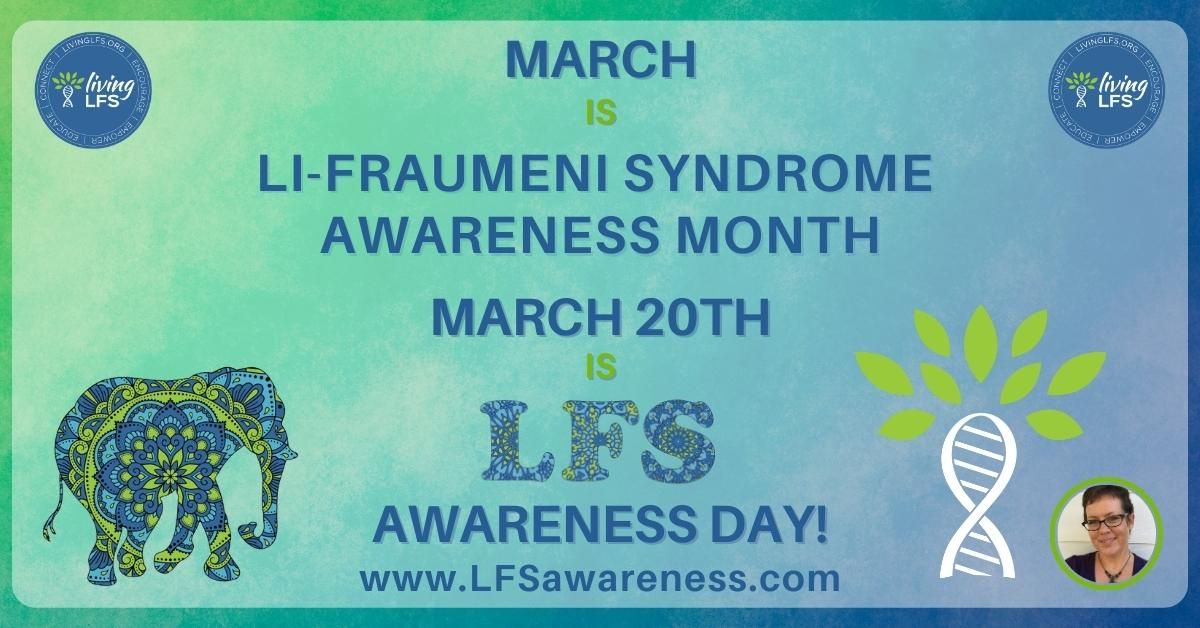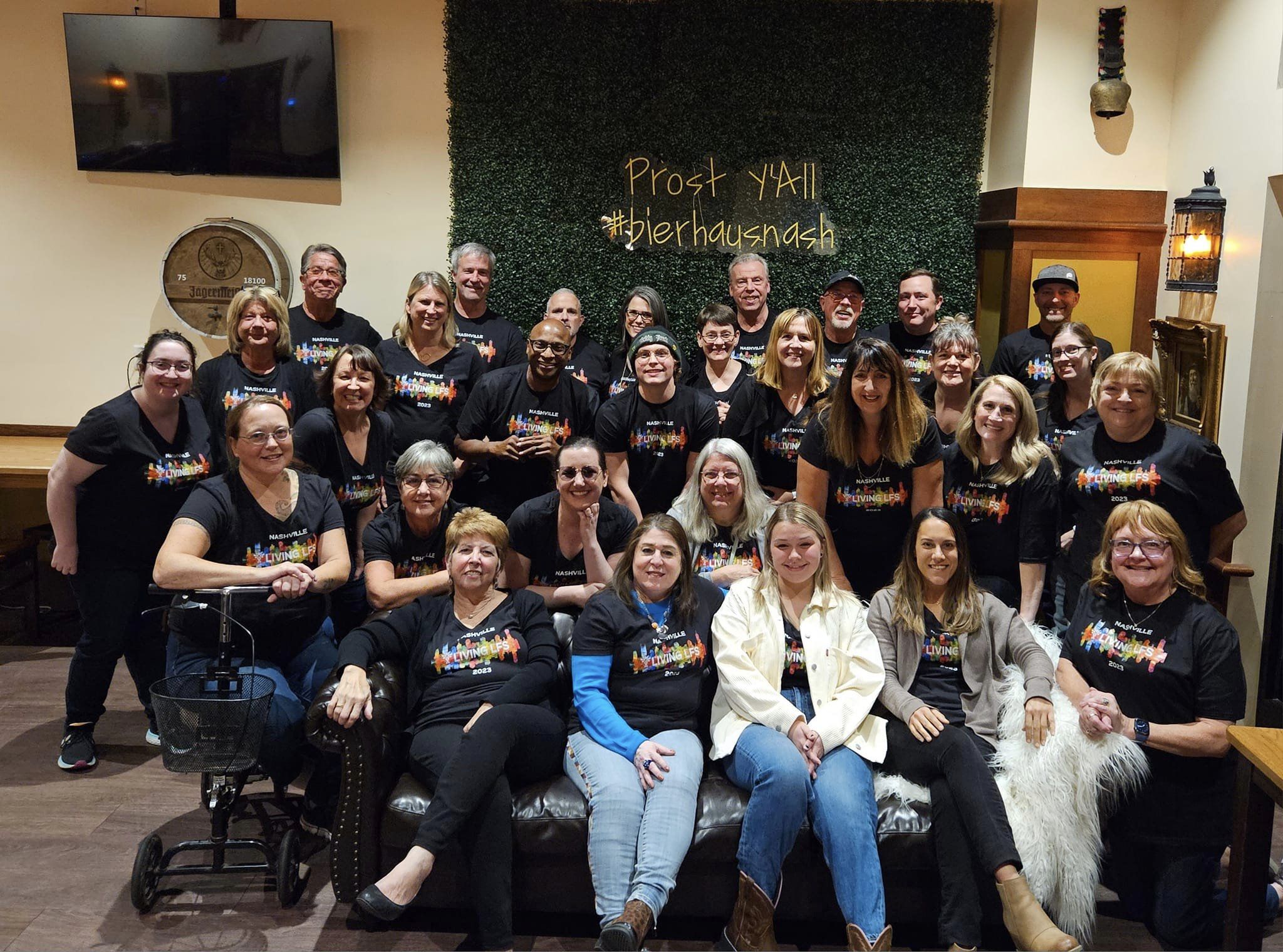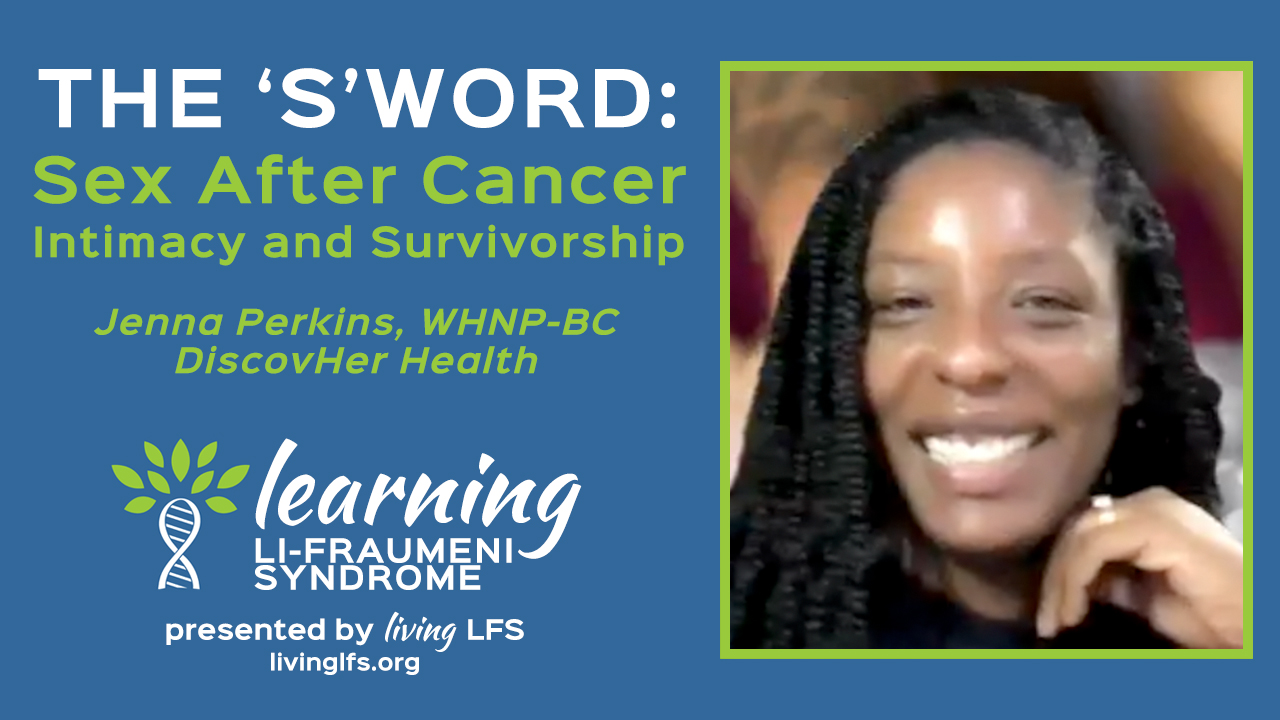I am fairly new to LFS, by many peoples standards, only learning of my family's genetic problem in 2011. We all understand that this knowledge is life altering, and for most, it is devastating information to come to terms with. My journey in this regard has been no different. I would not suggest to anyone that discovering that you have a cancer predisposition syndrome is an easy thing, because it infiltrates nearly every aspect of life and factors in to nearly every decision both large and small, from how to manage your retirement to what you put in your grocery cart. LFS is seldom far from consciousness.
However, I tend to be a pragmatic person, and rather than remaining angry about this situation and railing against the realities of it, I try to work with the known facts and use the tools and blessings that I have been given. I am directing my efforts in concert with our reality.
When Jen Mallory asked me to help form Living LFS with other likeminded mutants in order to serve our community, I was timid and quite unsure of what I could bring to the table, lacking both non-profit experience or any sort of technology skills. With much patience and some prodding on her part, I have discovered how I really think that I can help our community.
I would like to make finding appropriate research studies easier for those with LFS, because heavens knows that the average mutant is far too busy scanning, or "cancering," (as we snarkily refer to the process of chasing down abnormalities to ensure that we aren't brewing something new), battling, or most preferably Living to be out there looking for studies. Researchers in LFS, I have noticed, often have ridiculously small cohorts (the number of people in a study) because they do not know how to find us in a widely dispersed community. And as we all know, when it comes to research cohorts, size matters.
We have a vibrant online support community of several hundred, which will always remain private. I would like to bridge the divide between that private group and the scientists who want to help us. I will be sharing with you the opportunities that I learn about, to help researchers who are trying to help us. I will explain what they hope to learn, and what we might do to help them. I will provide information about who to contact and what the process should require of you, so that it is less intimidating and there are fewer surprises. None of us like surprises in a medical situation.
Living LFS strives to make this journey less lonely and overwhelming by organizing our resources and collective experiences and then sharing them with each other. My hope is that together with researchers, we can work to make living with LFS more manageable medically, by doing this very same thing: sharing our collective experiences with them, so they can discover how to fix this. I realize that this sounds incredibly optimistic, but I truly believe that together, we can make an enormous difference.
One of the reasons that LFS is so devastating, is that historically, we were powerless to do anything but wait for cancer to come to us, isolated and alone. We live in a different age now. We screen to catch cancer in its early and more treatable stages. The treatments are getting better and less toxic. We connect with one another online. And I believe that if we refuse to be isolated cases that cause doctors to scratch their heads and shrug their shoulders, but rather a large group of patients from all over, who share their experiences with scientists who want to help us, we can further our own cause.
I am not a researcher and so in this sense, I am powerless to 'fix' this for my children. But I do know that I can make research less intimidating, easier to find, and more understandable to the people who are time taxed. I have a couple of opportunities that I will be sharing with you soon. Until then...
Mutant hugs,
Ann


